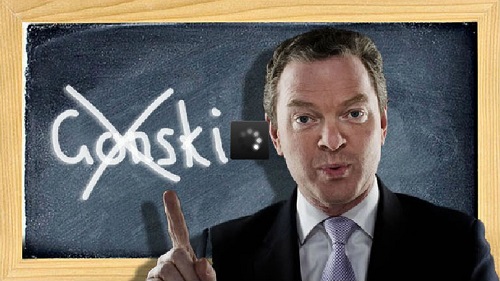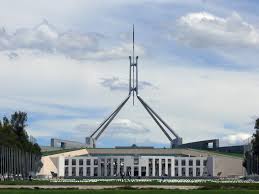Politics is broken, is the shorter message of Mark’s post at The new social democrat. Mark, writing before Hockey’s budget speech predicted that the budget would be “horrible”.
He was right. There may have been a feeling that the bad news had been leaked early. In fact the true horror is being revealed in the detail coming out after the speech.The speech sounded like severe belt tightening with a raft of cuts (summary here). In the interview after the speech Sarah Ferguson nailed Hockey on at least two major points. The first is that ordinary folk will carry a bigger burden than the rich, not just proportionately, but in actual dollars. On one count $1400 for the rich and $3000 to $5000 for lower to middle income families.
In fact middle Australia, the poor, the young and the marginalised will be hammered in Hockey’s vision of an age of opportunity, rather than entitlement.
Take the young unemployed:
The Abbott government’s first budget revealed job seekers applying for Newstart or Youth Allowance, who have not been previously employed, will face a six-month waiting period of no income support before they are eligible for payments by undertaking 25 hours a week in the Work for the Dole program.
Once they have spent six months on the program, they will lose income support for another six months unless they undertake training or study.
People under 25 will not be eligible for the dole and instead will have to apply for Youth Allowance which is about $100 less a fortnight. Newstart and Youth Allowance will also be frozen for the next three years.
The hourly rate on Work for the Dole will be $10.20 for Newstart and $8.29 for Youth Allowance.
In the six months applicants for Newstart and Youth Allowance do not receive income support, they will be required to undertake government-funded job seeking programs.
For those thrown out of work Newstart will be limited. With some exceptions:
Newstart applicants will receive one month of income support for every year they worked before applying for the dole and exceptions to the six months…
I don’t think we can talk in terms of a general safety net any longer. We have instead active harassment in the name of stimulating greater personal responsibility. We are leaving a system where all are looked after in favour of a system where only the deserving are supportis severely conditional and incomplete.
Family payments will save a whopping $7 billion, but hardest hit will be:
Sole parents, single parents and parents of disabled children will be hardest hit under changes to family tax benefits, designed to save money and get primary carers back to work.
More harassment.
The second point coming out of the Ferguson/Hockey interview was that the Abbott government is intent on forcing the states to increase the GST by cutting the funding for schools and hospitals by $80 billion over the next 10 years. Hockey’s response was “States runs schools and states run the hospitals” and “All the GST goes to the states so it is up to them.”
That’s clear enough, but not what voters expected or were told to expect.
Mark quotes EMC research:
this week’s Essential Report suggests voters are expecting to take the fall for a budget emergency that is really just a false alarm.
Without believing the central premise of the budget, voters are left with a sick feeling they’ll pay for a budget that doesn’t fix the economy but rather punishes ordinary people in favour of the wealthy.
Mark says (read the whole post!):
The most important thing about this Budget is that it symbolises the brokenness of Australian politics. It’s a tipping point, a crisis moment for the political class.
Everything they [the Government] think they learnt in politics school is wrong, and the focus groups must be feeding this back. We can see this reflected through the inconsistent and panicked messaging from the government.
Confected austerity economics will not work in a crisis of trust. Nor will “let’s all pull together” work in an age of upper middle class entitlement, generously fostered by John Howard’s electoral/fiscal calculus.
I still have some faith in Chris Bowen, who seems to me principled, articulate and genuine. I’d rather he gave the budget reply speech, but there is some hope for Shorten. He sounds less like a politician than many and that may eventually play in his favour.
Abbott has calibrated his message to mask his detailed promises about no cuts “full stop”. For example, he promised no cuts the the ABC and SBS, Instead $43.5 million is being taken out of their budget over the forward estimates. That’s 1% of general funding, plus cancellation of the Australia Network contract one year in, halving its budget. The ABC used the Australia Network funding to enhance its threadbare foreign coverage for the network generally.
Abbott is a silver tongued politician, master of slogans, but is sounding more and more like a salesman, inherently untrustworthy.
You don’t build a stronger Australia by shredding safety nets and increasing inequality.
Update: I thought I’d add here from this post the ABC FactCheck verdict showing how Hockey has added $68 billion to the deficit and essentially confected a budget ‘crisis’, as shown in this table:

See also Hockey’s morality play.
Also see Mark on Hockey’s social dystopia and John Quiggin on the mess of contradictions, meanness, trickiness and tribalism that is the Abbott-Hockey Government’s first budget.








 Christopher Pyne said he was expecting a warm reception from education ministers yesterday. Seems it was heated to the point of being downright explosive.
Christopher Pyne said he was expecting a warm reception from education ministers yesterday. Seems it was heated to the point of being downright explosive.